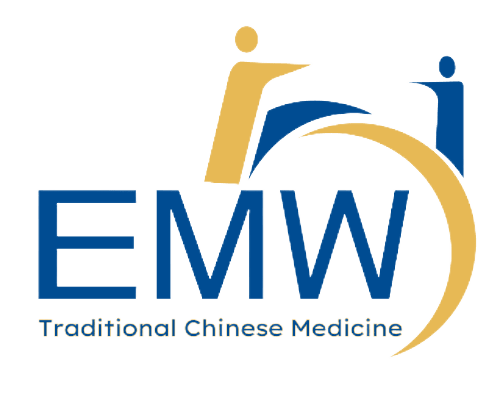What is vaginismus?
Vaginismus is a painful, psychosexual dysfunction that inhibits sexual intercourse and prevents conception and Traditional Chinese medicine (TCM) and acupuncture, effective at treating pain, may be indicated for vaginismus.
Vaginismus is a painful, psychosexual dysfunction that prevents sexual intercourse and occurs in approximately 5% to 12% [1] of the U.S. female population. The involuntary spasm of the pelvic (perineal and levator) muscles prevents or severely limits penetration during intercourse, and complicates vaginal medical exams. Vaginismus is best described as a “psychosexual dysfunction in which a woman unconsciously triggers the reflex spasm of the muscles surrounding the vagina” [2].
How is vaginismus diagnosed?
Diagnosis is made through physical exam noting any of the following: hypertonicity of the pelvic floor, pelvic floor motor instability, reduced ability to contract and/or relax the pelvic floor and increased muscular instability at rest [3]. In severe cases, this condition can include the leg, abdominal and gluteal muscles as well.
Primary vaginismus is determined if symptoms are present from the first attempt at vaginal penetration, and may be associated with familial, cultural or religious taboos, fear of pregnancy and/or childbirth, a history of sexual or medical trauma, or other relation-ship or interpersonal difficulties. Secondary vaginismus presents more commonly subsequent to a physical or psychological trauma, such as infection, menopausal changes, pelvic pathology (Caplan, 1988) and develops after a period of time in which vaginal penetration has been comfortable. (Munasinghe, Goonaratna and De Silva, 2004) This condition can pose a significant barrier to conception and is generally under-treated when medical care is directed only at fertility. (Tulla et al., 2006)
How is vaginismus treated?
Common biomedical treatment of vaginismus include, systematic desensitization (including biofeedback, plastic dilators and physical therapy), sex therapy, couples therapy, pharmacotherapy (including localized injection of botulism toxin), and hypnotherapy. There are limited controlled, randomized studies reflecting the effectiveness of these treatment modalities. However, case series report the most effective therapeutic strategies include couple or individual sex therapy [4], or combination treatment of cognitive/behavioral sex therapy with plastic dilators [2].
How TCM and acupuncture treats vaginismus?
Traditional Chinese medicine (TCM) treatment including both acupuncture and Chinese herbal therapy is an effective treatment for recalcitrant pain syndromes such as vaginismus [5]. In developing a TCM & acupuncture clinical understanding, the involuntary spasm of the vaginal muscles may be categorized as Qi and Blood Stasis or Wind-Cold Bi Syndrome in the Liver Channel in treating vaginismus. Sexual trauma stagnates the Qi and Blood, leading to a Bi syndrome in the Liver channel, as the channel travels through the genitalia. An external pathogen allows a Wind Cold invasion and manifests as a recalcitrant channel blockage.
From the Five-element system of Chinese medicine, the Pericardium is known as Circulation/Sex. Vaginismus could be considered a physical manifestation of an imbalance within this organ that functionally governs blood circulation and controls access to sexuality and acupuncture & TCM strived to rectify it. When in balance, the Pericardium allows intimacy and vulnerability while simultaneously protecting access to the “monarch” of the body – the Heart. When one is unable to be open to love, intimacy or vulnerability, there may be an imbalance in the Pericardium. The Pericardium acts as the Heart’s gatekeeper. In the case of vaginismus, the imbalanced Pericardium remains closed and prevents access to the Heart thereby causing a physical inability to tolerate vaginal penetration.
However, acupuncture alone is not sufficient to treat vaginismus – we need to work in conjunction with a physiotherapist specialised in vaginismus.
How TCM and acupuncture treats vaginismus in EMW?
If you have been diagnosed with vaginismus and would like to book a consultation with our Physician, please take note that your treatment plan may involve:
2. Acupuncture
3. Moxibustion (for suitable constitution)
4. Dietary and lifestyle advice to adhere that will help to improve vaginismus
References
[1] Rosen, S C, Taylor, J F, Leiblum, S R, & Backmann, G A. (1993). Prevalence of sexual dysfunction in women: Results of a survey study of 329 women in outpatient gynecological clinic. Journal of Sex and Marital Therapy. 19(3), 171-188.
[2] Tulla, M E, Dunn, M E, Antilus, R, & Muneyyirci-Delale, O. (2006). Vaginismus and failed in vitro fertilization
[3] Jeng, C H, Wang, L R, Chou, C S, Shen, J & Tzeng, C R. (2006). Management and outcome of primary vaginis-mus. Journal of Sex & Marital Therapy. 32:379-387
Our TCM Physicians
Principal TCM Physician
- M.Med(TCM Gynaecology)
- B.Sc(Hons) Biomedical Sciences
- Dip. Naturopath
- Ayurvedic Therapist(500hrs)
- Registered TCM Physician (Singapore MOH)
Senior TCM Physician
- M.Med(TCM Acupuncture & Moxibustion)
- B.Sc(Hons) Biomedical Sciences
- Certified Aromatherapist
- Registered TCM Physician (Singapore MOH)
TCM Physician
- M.Med(TCM Gynaecology)
- B.Sc(Hons) Biomedical Sciences
- Registered TCM Physician (Singapore MOH)
TCM Physician
- B.Med(TCM)
- B.Sc(Hons) Biomedical Sciences
- International Board-Certified Lactation Consultant (IBCLC)
- Registered TCM Physician (Singapore MOH)





